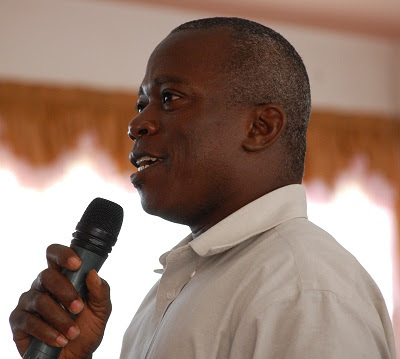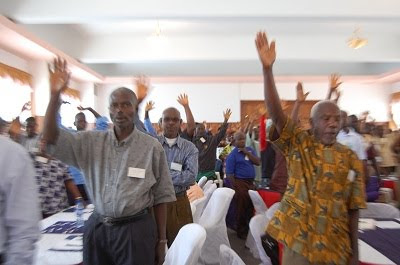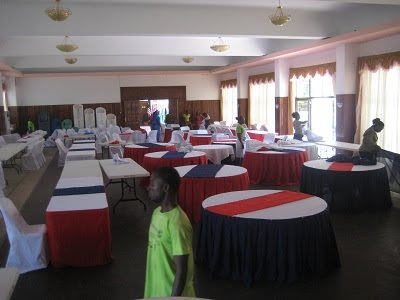For the past 18 months my main priority has been to work as LEAD’s Mentoring Program Coordinator. A few months before I arrived, LEAD had connected its first client in a mentoring relationship. Mama Sallie of Paulma’s Guesthouse in Gbarnga was connected with husband and wife mentors from the US. Together, they all worked on practical means of improving her business by problem solving challenges in her business such as having extra wasted food at the end of each night, improving her customer service, and creating promotions such as the idea of having customers drop their business cards into a bowl for a chance at winning a free meal.
Since this first mentoring relationship we have been connecting many more clients with mentors, and have been learning from the experiences to refine LEAD’s mentoring program. I first created a mentoring program handbook about a year ago, and its undergone many revisions as we learned more about the subject.

Everything you need to know about business mentoring.
Not to say that we haven’t had challenges. All relationships go through phases, and take concerted effort to keep going. Mentoring relationships can fail due to logistical communication difficulties, cultural and personality differences, failure to understand the potential benefits or an inability to make the relationship a priority, but we’ve found that by focusing on a particular area of the entrepreneur’s business and encouraging both scheduled and spontaneous communication, the relationships can flourish.
Now, especially as I near the end of my time with LEAD, we are more than ever concentrating on making the program something that will last into the future and be accessible to as many entrepreneurs as possible. About eight months ago we heard about a peer mentoring model that was being developed by the Hopeline Institute in Ghana, a fellow affiliate organization of Partners Worldwide. It seemed like a great model and we were eager to learn about it.
I met with Hopeline Executive Director Fanny Atta-Peters in October while attending the Partners Worldwide conference in Michigan. We chatted about the prospects of bringing the model to Liberia and I decided to pass through Ghana on my way back to learn about the logistics of the program and to hear the stories of Hopeline clients who had been matched with mentors – and were also mentoring others – from within their own graduating SME business training class.

Renita and Fanny at the Hopeline office in Accra.
Fanny arranged for three of Hopeline’s mentoring program participants to share their experiences and I was impressed by what I heard. Ravina and Amma are both artisans making bead crafts and jewelry. Ravina is technically mentoring Amma to help her expand her product line, but it was very clear that they are both benefitting from the relationship. They cooperate together to buy materials when they hear of someone going to Guinea for materials. They have become inseparable friends and offer prayer and encouragement to each other. They are even sharing books, and such as the one they showed me on how to handle the stresses of being a busy businesswoman. The two have become so close that Ravina sells Amma’s products in her shop if she doesn’t make them herself, and vice versa.
“I told Amma about the corners of Accra where you could get materials for less.” – Ravina
“I didn’t have anyone to talk to, but with her I share ideas.” - Amma
Prosper is a furniture manufacturer who is mentoring fellow graduate Daniel on marketing his business, and is also being matched with a mentor from abroad to mentor him. Prosper feels he and Daniel are both benefitting from the relationship. He says he gets a lot of enjoyment out of helping out a fellow entrepreneur and the two have become close. Prosper is well networked, so whenever Daniel goes into a new area of greater Accra to do work, Prosper gives him contact numbers of good people to get in touch with. The two encourage each other over the phone and in person.
Upon returning to Liberia, my colleagues and I began laying the foundation for LEAD’s version of the model. We decided to test out the program with the Montserrado County NEI business training class that would start at the end of February. We included an updated copy of LEAD’s mentoring program handbook in the back of the Partners Worldwide business training curriculum that everyone in the class gets, and we decided to teach one of the sections during each of the twelve weeks of class. Then, with representatives from Hopeline coming to Liberia to attend the Africa’s Marketplace Revolution conference, we invited them to share some of their stories and best practices with us, and help us continue to work through the logistics of planning such a program.

Fanny, Martin (Partners Worldwide), Andrew, Matthew, Charlesetta and myself discuss share ideas on operating mentoring programs.
Now that the conference is over, the class has begun and yesterday we taught the third session. Mentoring is not exactly a well understood concept in Liberia (in most parts of the world, for that matter) but there is a lot of excitement being generated among the participants. The idea is that business mentoring is a way for entrepreneurs to improve upon an area of their business that they particularly need help in. I don’t expect everyone will opt to join the program, but we’re hoping a large percentage will. Of those who do, most of them will be matched with a mentor from within their class who possesses the business skills they want to develop, so it’s therefore likely that we will also be asking them to mentor someone else from their class who needs help in an area where they themselves excel.

This guy sports a new LEAD embroidered polo shirt (love it) and puts some Liberian English to work as he explains Section 3: "The Tiered Mentoring System".
For those who need help in an area of business that no one in the class can mentor them in, we will create an entrepreneur profile and show it to graduates of previous classes and to other businesspeople from Liberia, elsewhere in West Africa, and North America. In this way, the peer mentoring program essentially encapsulates LEAD’s entire mentoring program.
By linking the program to the NEI business training course we can be assured that everyone going through the program will have the opportunity to be mentored, and also that the program will continue to cycle forward. Once we test out the program in Montserrado County, LEAD’s Asst. Director, of Operations Matthew Davis, with the help of Montserrado County Program Manager Andrew Davis and Education Coordinator Jacob Blamo, will be spreading the model to the other 4 counties currently offering the NEI course.














































